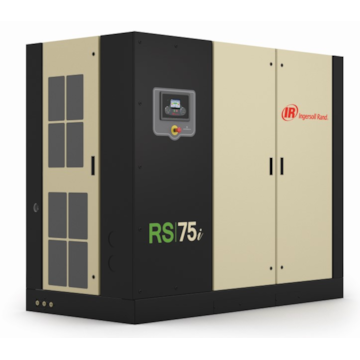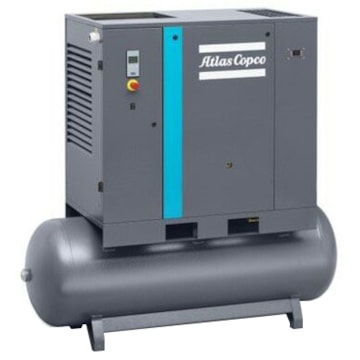Everything You Need to Know About Industrial Chillers
In any industry, ensuring your machinery remains cooled and regulated is important for preventing damage or undue strain on machinery.
This is a job that's often best suited for industrial chillers, which are also used for dehumidifying air and preventing corrosion or contamination. You can likely imagine what process water chillers do broadly, but let's discuss that process more specifically and provide some examples of ideal applicaitons.
What Are Industrial Chillers?
In both commercial and industrial facilities, water chillers are the go-to solution for portable cooling systems. As a refrigeration unit, industrial-sized chillers serve as either a way to cool liquids or dehumidify air. This process assists in managing equipment temperature to keep production rates at an optimal level and avoid possible downtime.
However, this is where we introduce a "twist" with these units. Industrial chillers don't actually chill anything, but remove heat from a unit to keep temperature at a lower relative level. This is more efficient than actively pumping cold air into a heated system to cool it down and, generally, it would be more accurate to think of these devices as "heat removers" rather than chilling tools.
The Chilling Process
Let's expand this conversation to talk about the process that industrial chillers undergo when working to keep a unit cool. For reference, this process is comparable to what you would expect from a normal refrigerator and can be broken down into four steps.
1. Refrigeration process
As previously stated, the chiller removes heat from the machinery, fluid, or surrounding area in order to keep the intended object or environment at a desired temperature.
2. Vapor created
Once the refrigeration process has begun, heat will cause the evaporation of water, though the exact process depends on whether you use a water-cooled or air-cooled chiller.
3. Vapor compressed
The newly-created vapor will rise and enter a compressor, increasing its temperature and pressure.
4. Vapor goes to condenser
Once the vapor has been compressed it moves to a condensor that lowers its temperature and reverts it to a liquid. This liquid is then sent back through the evaporator and the cooling cycle repeats itself again.
Because this process partially recycles and reuses water or air, it can be repeated over and over again without a need for refills. This ensures you receive constant and consistent cooling that maintains an optimal production rate.
Water vs. Air Chilling
These are the two main processes for industrial chillers — water-cooled and air-cooled — that each offer their own advantages to consider for various processes. Neither of these are the "wrong" choice per se, but knowing the inner workings of both can help your team select the option best suited for the application.
Water-cooled chillers: The key advantage of a water-cooled chiller is more efficient and precise heat transfer. These units are generally more energy efficient and operate at a lower condenser pressure, giving them a longer lifespan than counterparts of up to 30 years.
The trade-off is upfront and maintenance costs are higher and the machines typically take up more physical space. An interesting development that can help limit those maintenance costs is the development of modern artificial intelligence (AI), which can help detect potential issues and ensure predictive inspections occur before system failure and possible downtime.
Air-cooled chillers: The advantages here start with lower upfront costs and eliminating water treatment costs, making it preferable for groups with a tighter budget or those with needs for a chiller in outside applications. Because they are smaller are designed with outdoor applications in mind, portable variants for a number of applications are also available.
The disadvantages of air-cooled chillers include being less precise with their heat transfer and less energy efficient due to their higher condenser pressure. Combined with enduring outdoor environments, this spells a shorter lifespan — typically between 15 and 20 years.
Sourcing Industrial Chillers
One lingering question remains here: Where is the best place to find a chiller?
Our team recommends shopping on the Compressor World website, an online leader in the world of air compressors. With a team of experts in the field on staff, we would be happy to work with you and ensure you get the perfect tool for your applications.
Contact our experienced team by calling 866-778-6572 or info@compressorworld.com



















